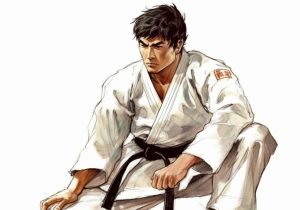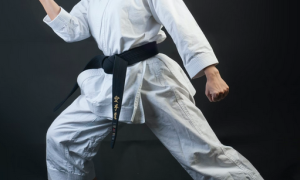
Are you considering enrolling your child, or even yourself, in karate classes? Determining the right age to start learning Karate or martial arts in general, can be a critical decision that influences the effectiveness and enjoyment of the training. In this article, we’ll explore the factors surrounding the best age to begin karate, considering the benefits, disadvantages, and advantages of different starting ages.
Table of Contents
ToggleWhat is the Best Starting Age for Karate?
When it comes to karate, the right starting age can make all the difference. Let’s dive into the age groups and examine the distinct benefits, disadvantages, and advantages associated with each stage of the martial arts journey. Check out our informative table below:
| Age Group | Age Range | Benefits | Disadvantages | Advantages |
|---|---|---|---|---|
| Preschool | 3 – 5 years | – Develops motor skills | – Limited attention span | – Early exposure to discipline and structure |
| School-age | 6 – 12 years | – Enhanced focus and discipline | – Varied commitment levels among kids | – Strong foundation for self-defense skills |
| Teens | 13 – 19 years | – Better comprehension of techniques | – Time Management | – Maturity aids in grasping advanced concepts |
| Adults | 20+ years | – Dedication to learning | – Physical limitations may arise | – Immediate application of self-defense skills |
Each age group brings its own set of benefits and challenges. Starting preschoolers in karate introduces them to discipline and structure early on, which can be advantageous in their overall development. School-age children benefit from improved focus and discipline, setting the stage for self-defense skills to be ingrained as habits. Teenagers often grasp advanced techniques more quickly due to increased comprehension skills, and adults bring dedication and a deeper understanding of the art.
The Best Age to Start Karate
The question of the best age to start karate doesn’t have a one-size-fits-all answer. It depends on your goals and expectations. While starting karate at a young age has its merits, beginning in the teenage years can also lead to impressive results. If your primary focus is self-defense, waiting until the teenage years might yield equally effective outcomes.
Why Starting Too Early May Not Always Be Ideal
Starting karate too early might not yield the desired results if the main objective is self-defense. Young children might struggle with grasping the more intricate techniques and principles of self-defense due to their developing cognitive abilities. While early exposure to karate provides foundational discipline, postponing formal training until the teenage years can lead to a more comprehensive understanding of self-defense strategies.
How Starting Too Late Is Never a Thing
It’s never truly “too late” to start karate. While there might be physical limitations that come with age, the benefits of karate extend beyond physical prowess. Even if you begin your martial arts journey in adulthood, you can still develop mental discipline, enhance focus, and acquire effective self-defense skills.
The Youngest Age You Can Expect to Start Karate
Most martial arts schools offer classes for children as young as three or four years old. These introductory classes typically focus on building motor skills, coordination, and basic discipline. However, it’s important to note that the depth of technical training and self-defense concepts increases with age.
In conclusion, the best age to start karate depends on your goals and expectations. Each age group offers unique advantages and challenges. Starting early exposes children to discipline and structure, while starting in the teenage years can lead to a more comprehensive understanding of self-defense. Ultimately, it’s never too late to embark on a karate journey, as the benefits extend beyond physical prowess and cater to individuals of all ages. Remember, karate is not just about combat—it’s a journey of self-improvement and empowerment.
Overall Benefits of Karate
Karate offers a myriad of benefits that span various aspects of life. Whether you start at a young age or later in life, these benefits are attainable and impactful:
Physical Fitness
Karate is a full-body workout that enhances strength, flexibility, and cardiovascular health. It promotes muscle development and overall physical fitness. The combination of various techniques and movements keeps the body engaged and active.
Mental Discipline
Karate instills discipline and mental focus. Practitioners learn to control their thoughts, actions, and emotions, leading to improved concentration and decision-making in daily life.
Self-Defense Skills
One of the primary reasons people pursue karate is to learn self-defense. Regardless of age, the techniques and strategies acquired in karate can empower individuals to protect themselves and their loved ones.
Confidence Boost
As individuals progress in their karate journey, they experience a boost in self-confidence. Achieving new belts and mastering techniques fosters a sense of accomplishment and self-assurance.
Stress Relief
The practice of karate provides an outlet for stress and tension. Engaging in physical activity and focusing on precise techniques can help alleviate stress and promote relaxation.
Lifelong Learning
Karate is a journey of continuous learning. Regardless of age, practitioners can constantly improve their skills, learn new techniques, and challenge themselves mentally and physically.
FAQ
Is it ever too late to start karate?
No, it’s never too late to start karate. Regardless of your age, you can benefit from the physical, mental, and self-defense aspects of martial arts training. The key is to set realistic goals and expectations based on your starting point.


